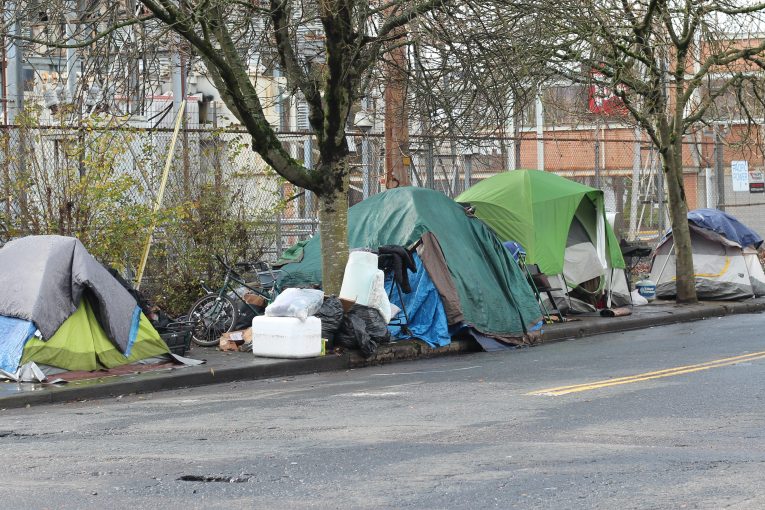
Vanguard Sacramento Bureau Chief
SACRAMENTO, CA – A week after the city of Sacramento utterly destroyed Camp Resolution—a “Safe Ground” encampment holding about 50 disabled or elderly residents in a city-approved location—the California and Sacramento homeless unions filed a motion in Sacramento County Superior Court to oust the judge who refused to hear the unhoused’s case.
The unions also, according to a statement issued Tuesday, filed a complaint with the U.S. Dept. of Justice Civil Rights Division late Friday, informing federal officials the “harm is continuing. The situation is urgent” for the former residents.
Superior Court Judge Jill H. Talley refused to hear an appeal last Friday by the unions, who have now filed a motion to recuse the judge.
“Under the rules, a judge who is challenged for bias must disqualify herself from the case, which is then transferred to a different judge. Judge Talley abused her discretion and failed to favor substantial justice over alleged technical defects in our filings,” charged California Homeless Union Attorney Anthony Prince.
Prince also maintained on Aug. 9, “with the lease for Camp Resolution still in effect, the Court wrongfully refused to order the City to specifically perform its obligation to keep the camp open until all residents were permanently housed, thereby violating the rights of the residents as third party intended beneficiaries.”
And, in a complaint with the U.S. DOJ, the residents charged “the City of Sacramento with numerous federal and state civil rights violations in the destruction of Camp Resolution,” including deprivation of civil rights, conspiracy to violate civil rights, violation of the Americans with Disabilities Act, Rehabilitation Act and the California Fair Employment and Housing Act (FEHA).
In the federal complaint, the union noted “the City of Sacramento used police, bulldozers, dump trucks and firefighters in a massive show of force to close a self-governed, City-sanctioned homeless encampment officially designated as a city shelter forcibly evicting approximately 50 persons, mostly elderly women with serious physical and psychiatric disabilities.”
The filing argued, “The City systematically destroyed or seized vehicles in which people were living and personal property including food, clothing, personal survival items and medical devices on which many relied to stay alive.”
Prince and the union, representing the homeless residents, add the city “refused to consider previously filed applications for disability accommodations in disregard of its own Reasonable Accommodations Policy,” claiming “residents at Camp Resolution and Roseville Road were entitled to reasonable disability accommodations and that these rights extend to the clearing of encampments.”
The pleading insists, in April of 2023, the chief judge of the Superior Court—Michael Bowman— “wrote a public letter to the City of Sacramento demanding that the police remove all homeless persons from the plaza of the main courthouse where they had sought refuge from a deadly heatwave.”
“(T)he Chief Judge ignored a federal court order then in effect restraining the City of Sacramento from clearing homeless encampments during the period of extreme temperatures,” the complaint asserts, adding Bowman “refused to meet with the 2,800-member Sacramento Homeless Union which publicly voiced its concerns that his actions had set a highly prejudicial tone such that a homeless person would not be treated fairly in Sacramento Superior Court.”
The homeless unions said police last week, in the destruction of Camp Resolution, “declared the area to be a crime scene, barring the residents’ attorneys, Union representatives, medical personnel, service providers and the press.”
The unions wrote the “City had been pressuring residents to relocate to other City shelters, primarily to its Roseville Road site, a former military installation surrounded by barbed wire, armed guards where visitors are prohibited, where residents have no electricity and where the City refused provide reasonable disability accommodations to anyone who might ‘choose’ to go there.”
